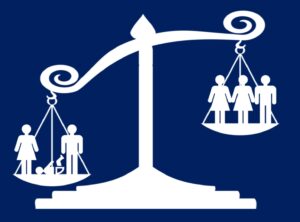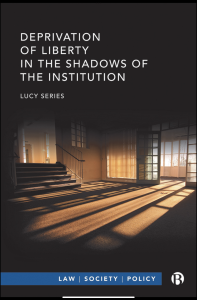Deprivation of Liberty Safeguards & Liberty Protection Safeguards Resources

On this page you will find links to both Deprivation of Liberty (‘DOLS’) Resources, and Liberty Protection Safeguards (‘LPS’) Resources due to be introduced in April 2022 to reform DOLS.
The information and links to third party resources on this page are provided for training and education purposes only. Advice from a suitably qualified and experienced lawyer, with the Law Society’s Mental Capacity (Welfare) accreditation should be sought in relation to individual cases.
DOLS and LPS apply in England and Wales.
DOLS apply to individuals aged 18 and over.
LPS apply to individuals aged 16 and over.
DOLS and LPS are both concerned with the safeguarding of individuals who are deprived of their liberty for the purpose of care or treatment, when the person is deemed to lack the mental capacity to consent to that care or treatment.
European Human Rights Law
Article 5 of the European Convention of Human Rights (ECHR)grants everyone the right to liberty and security.
The European Court of Human Rights has published this guide explaining Article 5 ECHR,
Key Statutes
The Mental Capacity Act 2005 (‘MCA’) is an Act of the UK Parliament which applies in England and Wales. It provides the legal framework for decision making for and with people aged 16 years and over who lack the capacity to make those decisions independently. The Code of Practice provides important statutory guidance as to how the provisions of the Act should be put into practice.
Mental Capacity Act 2005 Code of Practice
Mental Capacity Act 2005 Code of Practice (Easy Read Version)
Mental Health Act 2007 Following the Supreme Court’s Bournewood judgment (see below) this Act introduced Deprivation of Liberty Safeguards.
Mental Capacity (Amendment) Act 2019. Introduced Liberty Protection Safeguards to replace Deprivation of Liberty Safeguards.
The Human Rights Act 1998 (HRA) incorporates the European Convention on Human Rights (ECHR) into domestic law in the UK, so into English and Scots law. In essence this means it makes it possible to bring actions for breaches of ECHR rights in the English, Welsh and Scots Courts.
The HRA applies to public authorities, as well as State funded authorities such as the NHS, this includes organisations, for example private hospitals or care homes, where a private organisation is providing publicly funded treatment and care.
Section 6 HRA makes it unlawful for a public authority to act in a way which is incompatible with the ECHR.
See under European and International Conventions below for more information about the
Leading Case Law
European Court of Human Rights Case HL v United Kingdom (2004) 45508/99 [2004] ECHR 720 (5 October 2004) (the Bournewood case)
This case concerned the deprivation of liberty of a man HL with autism and profound learning disability. He had lived for 32 years at Bournewood Hospital before moving live with Mr and Mrs E to be cared by them in their home, under a resettlement scheme. He lived with them for three years before being readmitted to Bournewood in 1997, following an incident at a day centre where he was violent towards himself. Instructions were given that he should be sectioned under the Mental Health Act 1983 should he attempt to leave. HL never tried to leave so remained in the hospital as an informal patient. Mr & Mrs E were not allowed to visit him in case he wanted to leave the hospital with them. Mr & Mrs E brought a case on HL’s behave claiming he had been deprived of his liberty.
The High Court judge held that HL hadn’t been deprived of his liberty until he attempted to leave and had been restrained from doing so. The Court of Appeal held that the actions of the hospital were based on a false assumption that they were allowed to assume consent on the basis that HL had not expressed dissent. The Court of Appeal also expressed concern at the extent to which health and social care professionals commonly misunderstand the law.
By a majority (meaning not all the judges agreed) the House of Lords (now the Supreme Court) held that HL had not been deprived of his liberty as his situation did not amount to false imprison, as there was no actual restraint, just potential restraint. Lord Steyn one of the dissenting judges said of the hospital trust’s argument that HL was always free to go ‘This argument stretches credulity to breaking point. The truth is that for entirely bona fide reasons, conceived in the best interests of “L”, any possible resistance by him was overcome by sedation, by taking him to hospital, and by close supervision of him in hospital. And, if “L” had shown any sign of wanting to leave, he would have been firmly discouraged by staff and, if necessary, physically prevented from doing so. The suggestion that “L” was free to go is a fairy tale .‘
The European Court of Human Rights (ECtHR), considering the relevance of Article 5 to HL’s situation held HL’s Article 5.1 right to liberty and Article 5.4 right to have the legality of his detention reviewed by a court, had both been breached.
The ECtHR found a striking lack of any procedural rules by which the admission and detention of compliant incapacitated patients was conducted. The contrast between this lack and the extensive safeguards applied when psychiatric patients were detained under the Mental Health Act 1983, was in the ECtHR’s view significant. The ECtHR found that this lack of procedural safeguards failed to protect against arbitrary detention.
The ECtHR’s judgment led to the UK government introducing DOLS.
Supreme Court P (by his litigation friend the Official Solicitor) v Cheshire West and Chester Council & Anor [2014] UKSC 19 (19 March 2014) (the Cheshire West) case.
This Appeal concerned two cases. The first involving Cheshire West and Chester Council involved the deprivation of liberty of P, who lived with cerebral palsy and Downs Syndrome. He required 24 hour care. P lived with his mother until he was 37 years old, but when his health deteriorated the local social services obtained an order from the Court of Protection that it was in P’s ‘best interests’ to live in accommodation arranged by them. From 2009 he lived in a bungalow with other residents. He had one to one support and was able to leave to attend various activities. His behaviour was sometimes managed when deemed challenging. The Court of Protection ruled that this arrangement did deprive P of his liberty, but it was in his best interests for them to continue. The Court of Appeal held that the arrangements did not amount to a deprivation of P’s liberty when compared to arrangements for another person of the same age and with the same disabilities.
The second case concerned the deprivation of liberty of two sisters, P & Q then aged 15 and 16, both with learning disabilities. P lived with her foster mother with whom she had a good relationship and went to a further education unit daily. P never attempted to leave her foster home, but would have been prevented from doing so had she tried. Q was moved from her foster home to a residential unit for young people with complex needs. Q was sometimes restrained physically and with medication. In 2009 the Court of Protection had held that these living arrangements for both the young women were in ‘their best interests’ and did not amount to a deprivation of their liberty. This finding was upheld by the Court of Appeal.
In the leading judgment Lady Hale held that:
- It is important not to confuse the question of the benevolent justification for the care arrangements with the concept of deprivation of liberty. Human rights have a universal character and physical liberty is the same for everyone, regardless of their disabilities.
- What would be a deprivation of liberty for a non-disabled person is also a deprivation for a disabled person.
- The key feature is whether the person concerned is under continuous supervision and control and is not free to leave.
- The person’s compliance or lack of objection, the relative normality of the placement and the purpose behind it are all irrelevant to this objective question.
- Accordingly their living arrangements constitute a deprivation of liberty.
- Periodic independent checks are needed for such vulnerable people to ensure that the arrangements remain in their best interests, although it is not necessary that the checks be as elaborate as those currently provided for in the Court of Protection or in the DOLS.
The Court of Protection makes decisions on financial or welfare matters for people who can’t make decisions at the time they need to be made (they ‘lack mental capacity’).
‘The Court is responsible for responsible for:
- deciding whether someone has the mental capacity to make a particular decision for themselves
- appointing deputies to make ongoing decisions for people who lack mental capacity
- giving people permission to make one-off decisions on behalf of someone else who lacks mental capacity
- handling urgent or emergency applications where a decision must be made on behalf of someone else without delay
- making decisions about a lasting power of attorney or enduring power of attorney and considering any objections to their registration
- considering applications to make statutory wills or gifts
- making decisions about when someone can be deprived of their liberty under the Mental Capacity Act.’
Source: Court of Protection website : Court of Protection – GOV.UK (www.gov.uk)
‘The Court is based in London. Most cases are heard by district judges and a senior judge but can sometimes be heard by High Court judges. Cases can sometimes be transferred to a local court for hearing.’
The Office of the Public Guardian is a public body whose role is the oversee the activities of deputies, attorneys and guardians appointed in England and Wales under the Mental Capacity Act 2005 to supervise the affairs and finances of individuals lacking capacity to manage their own affairs and finances. The body is an executive agency of the Ministry of Justice. The current Public Guardian is Nick Goodwin.
Deprivation of Liberty Safeguards Guidance
Mental Capacity Act 2005, Deprivation of Liberty Code of Practice
UK Government guidance: How to apply to the Court of Protection to challenge an order restricting someone’s freedom or to get a deprivation of liberty authorised.
UK Government DOLS resources for local authorities Resources from the UK Government for local authorities to support their roles as supervisory bodies DOLS
British Medical Association Guidance on DOLS
MIND guidance on DOLS
Care Quality Commission (CQC) Guidance on DOLS The CQC monitor use of the Mental Capacity Act 2005 in all health and care services in England. They also monitor the use of the DOLS in all care homes and hospitals in England. They receive notifications from providers about the outcome of DoLS applications and check on the use of DoLS during their visits.
A quick guide to DOLS published by Directors of Social Services ADASS
Department of Health: Deprivation of Liberty EASY READ
House of Commons Library Research Briefing – Deprivation of Liberty Safeguards 25th September 2018
Liberty Protection Safeguards (LPS)
The UK government has said LPS will be introduced in April 2022 replacing DOLS, after concerns that DOLS were too complicated and poorly understood and applied by health and social care staff.
UK Government Guidance: What are LPS and how are they different from DOLS?
UK Government Guidance Fact Sheets providing more detailed information about LSP
Dorset Advocacy (dorsetadvocacy.co.uk) Liberty Protection Safeguards EASY READ
Suggested further reading:

AdsFoundation will be running a series of on-line workshops on healthcare law and ethics. Please CONTACT US if you would like to be sent more information about these.
We welcome your feedback on this and all our resources, including information of any additional resources we should include or any changes you think we should make to our existing resources. Please use the CONTACT US tab above to share your thoughts with us. Thank you
BACK TO Communication Resources
FORWARD TO Deputy Resources




